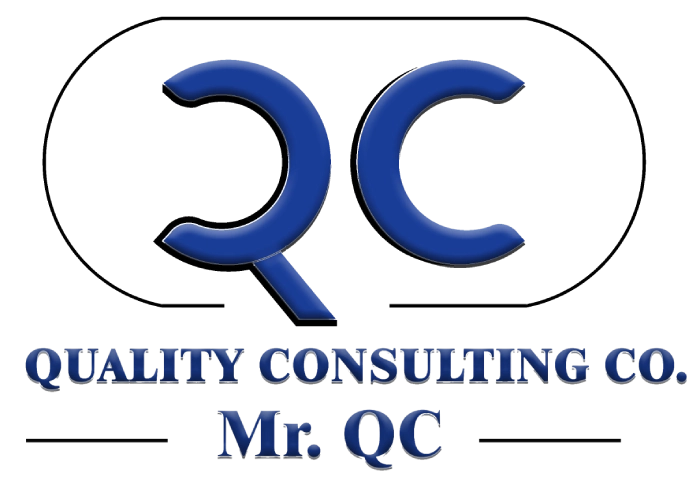- ISO Standards Consulting
- Procedure and SOP Development
- Corrective and Preventive Actions (CAPA)
- Software and Quality Tool Validation
- Supplier Management and Scorecards
- R&D and Design of Experiments (DOE) Support
- Regulatory Compliance and Certification
- Quality Training and Workshops
- Process Optimization and Lean Initiatives
- Risk Management (PFMEA & DFMEA)
What Does a Quality Assurance Consultant Do?

If you’ve ever wondered “What exactly is quality assurance, and why do businesses invest in it?” — you’re in the right place.
Quality assurance (QA) is the structured process of ensuring that your products and services consistently meet customer expectations. It’s not just about catching mistakes; it’s about preventing them. QA involves systematic actions—covering design, functionality, reliability, and performance—to make sure everything your company delivers lives up to agreed-upon standards.
From brainstorming sessions to training, monitoring, and audits, quality assurance specialists oversee every stage of production. Their goal? To identify issues early and make continuous improvements that boost quality and efficiency.
Is Quality Assurance Different from Quality Management?
While quality management and quality assurance are closely related, they are not identical. People often ask, “What does a quality assurance consultant actually do?”
A Quality Management System (QMS) professional oversees the broader quality framework of an organization. Their role includes developing, implementing, and maintaining the entire quality structure.
A Quality Assurance (QA) consultant, on the other hand, focuses more narrowly on evaluating, improving, and maintaining quality processes within that framework. They ensure that the company not only complies with regulations but also consistently delivers value to its customers.
In essence, QA consultants help organizations build and maintain the systems that guarantee excellence.
Key Responsibilities of a Quality Assurance Consultant
1. Developing a Quality Management System (QMS)
QA consultants start by designing or improving a company’s QMS. They identify existing weaknesses, bridge process gaps, and create a roadmap for improvement. This includes developing:
- Clear quality policies
- Procedures for identifying and allocating resources
- Comprehensive guidelines and manuals
- Standardized workflows for production and distribution
Their goal is to ensure consistency, traceability, and compliance throughout the entire production cycle.
2. Conducting Audits
Auditing is the backbone of every quality assurance strategy. QA consultants perform internal audits to evaluate ongoing processes, verify compliance, and highlight areas for improvement.
During audits, they analyze documentation, assess performance metrics, and report non-compliance to management and stakeholders. These insights allow the company to make targeted improvements to its products, operations, and supply chain.
3. Training and Education
A great quality system depends on well-trained employees. Yet, over 65% of companies lack consistent quality training programs.
QA consultants bridge this gap by conducting training sessions and workshops that teach staff about:
- Quality standards and compliance requirements
- Best practices for process optimization
- ISO and other international certifications
Through these sessions, employees gain a stronger understanding of how their work contributes to overall product and service quality—creating a proactive and quality-focused company culture.
4. Ensuring Regulatory Compliance
Global quality systems—like ISO 9001—include multiple regulatory requirements that companies must meet to maintain certification.
QA consultants are experts in these standards. They ensure your organization stays compliant by:
- Monitoring regulatory changes
- Updating internal processes accordingly
- Educating teams about new requirements
With their help, companies avoid costly certification delays and remain fully aligned with industry regulations.
5. Performing Root Cause Analysis
When problems arise, QA professionals don’t just treat the symptoms—they investigate the root causes.
Through detailed analysis, they identify the underlying reasons for recurring issues and implement corrective actions that prevent them from happening again. This systematic approach strengthens long-term quality stability.
6. Managing Customer Feedback
Customer satisfaction is the heart of quality assurance. QA consultants gather, analyze, and interpret customer feedback to identify trends, pain points, and opportunities for improvement.
By turning feedback into actionable insights, businesses can continuously refine their products, processes, and services.
7. Overseeing Supplier Performance
A company’s quality is only as strong as its suppliers. QA consultants work closely with suppliers to ensure they meet contractual and industry quality standards.
They evaluate supplier performance, review materials and documentation, and collaborate on improvement initiatives to ensure every link in the supply chain contributes to overall quality excellence.
Why You Should Invest in Quality Assurance Consulting
Hiring a quality assurance consultant isn’t just about achieving ISO certification—it’s about building a culture of excellence within your organization.
With expert guidance, you can:
- Strengthen your internal processes
- Reduce operational risks and product recalls
- Boost customer confidence and brand reputation
- Achieve compliance with ease
Partner with ComplianceHelp Consulting LLC
At ComplianceHelp Consulting LLC, we’re one of the United States’ leading firms for achieving ISO certifications. Our customized ISO 9001 solutions help you navigate the certification process with confidence and efficiency.
Whether you’re wondering “What does a quality assurance consultant actually do?” or you’re ready to start improving your systems, our experts are here to guide you every step of the way.
👉 Contact us today to learn how we can help your organization achieve lasting quality success.



